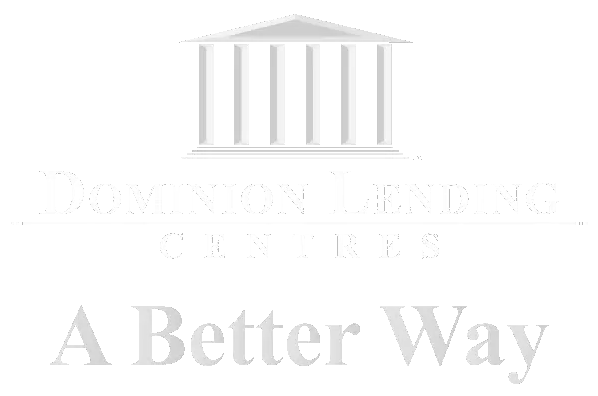Open for Business During COVID-19
Rita Wagner • April 22, 2020

If you're thinking about buying a new property, refinancing your existing mortgage, or if your mortgage is up for renewal, you might be wondering if getting a mortgage is even possible amid a global pandemic? Be assured that it is possible, mortgages are being written, and we're open for business (virtually).
Although it may not be business as usual. Mortgage brokers are still brokering, lenders are lending, real estate agents are selling houses, appraisers are appraising (virtually), inspectors are inspecting (some in hazmat suits), while lawyers continue to do what it is that lawyers do. Albeit in a climate of social distancing, with the increased use of technology.
Here are 3 things to consider while you plan for mortgage financing during the COVID-19 pandemic.
Everything is taking more time | Prepare yourself
As almost everyone involved in getting you a mortgage has had to alter the way they regularly do business, entire workforces are shifting from in-person to online. Despite the uptake in technology, things are taking a little longer than usual. Compounded by the fact that lenders are dealing with high submission volumes from clients wanting to defer mortgage payments, processing new mortgage applications can take longer than in previous months.
Your best plan of action is to prepare yourself ahead of time. Everyone is under a lot of pressure, so do everything you can to make sure your proverbial ducks are in a row and that you allow enough time to get everything done. Get as much of your personal documentation together upfront and be as organized as possible, it will go a long way in making for a smooth transaction.
Technology is keeping things running.
While many of the typical steps in the home buying process have been disrupted, with the use of technology, it is possible to buy a home while isolating in COVID-19.
Mortgage, real estate, and lawyer's documents should all be signed online. Although new technology can be scary, e-signatures allow transactions to take place, while doing your part to keep a social distance.
Admittedly, not the same as walking through a property, virtual tours allow you to get a sense of feel for a property more so than simple pictures. A lot of listings should have a virtual tour, while many real estate professionals are hosting virtual open houses, where they can take you on a virtual journey through the property using their phone.
Appraisers aren't required to complete a physical inspection any longer to determine a property's value; instead, everything happens online. An appraiser will use information from MLS data, municipal permits, property assessment information, client or owner information, and any other available source to estimate the physical characteristics of the house interior and the remainder of the property to come up with a valuation.
If you're looking to refinance or renew an existing property, the same is true, with the use of e-signatures and virtual appraisals, you can get a new mortgage, assuming you qualify.
You should expect more scrutiny on your mortgage application!
With over half of Canadians claiming to have lost work due to the COVID-19 coronavirus, it's not surprising that lenders are making a move towards extra scrutiny when assessing your overall application and employment documents. Lenders want to ensure your job stability now but also if things get worse down the line, you have good job prospects in the future.
As far as income goes, in a COVID-19 world, past job performance and income isn't a reliable indicator of future performance and income, everything has changed, and lenders are doing their due diligence. Lenders are becoming more conservative and risk-averse.
Lenders are starting to ask for income documents upfront. There is no use entertaining your mortgage application if they aren't confident about your prospects of employment.
Also, for self-employed borrowers, in addition to the standard required documentation of your past business income, you might be required to provide additional documentation going forward. Including, but not limited to: a description of your business activities, number of employees (including how many are actively working or laid off), current business status (operating or shut down), along with bank statements to prove stable income.
So although it might take a little longer than usual to get a mortgage, and you can most likely expect more scrutiny on your application, with the increased use of technology, mortgage financing is still possible.
If you'd like to discuss your personal financial situation, and how to go about getting a mortgage in these unprecedented economic times, we might not be able to get together in person for a coffee, but I'm open for business virtually and would love to help; please contact me anytime!
Share
RECENT POSTS

Thinking of Calling Your Bank for a Mortgage? Read This First. If you're buying a home or renewing your mortgage, your first instinct might be to call your bank. It's familiar. It's easy. But it might also cost you more than you realize—in money, flexibility, and long-term satisfaction. Before you sign anything, here are four things your bank won’t tell you—and four reasons why working with an independent mortgage professional is the smarter move. 1. Your Bank Offers Limited Mortgage Options Banks can only offer what they sell. So if your financial situation doesn’t fit neatly into their guidelines—or if you’re looking for competitive terms—you might be out of luck. Working with a mortgage broker? You get access to mortgage products from hundreds of lenders : major banks, credit unions, monoline lenders, alternative lenders, B lenders, and even private funds. That means more options, more flexibility, and a much better chance of finding a mortgage that fits you. 2. Bank Reps Are Salespeople—Not Mortgage Strategists Let’s be honest: most bank mortgage reps are trained to sell their employer’s products—not to analyze your financial goals or tailor a long-term mortgage plan. Their job is to generate revenue for the bank. Independent mortgage professionals are different. We’re not tied to one lender—we’re tied to you. Our job is to shop around, negotiate on your behalf, and recommend the mortgage that offers the best balance of rate, terms, and flexibility. And yes, we get paid by the lender—but only after we find you a mortgage that works for your situation. That creates a win-win-win: you get the best deal, we earn our fee, and the lender earns your business. 3. Banks Don’t Lead with Their Best Rate It’s true. Banks often reserve their best rates for those who ask for them—or threaten to walk. And guess what? Most people don’t. Over 50% of Canadians accept the first renewal offer they get by mail. No questions asked. That’s exactly what the banks count on. Mortgage professionals don’t play that game. We start by finding lenders offering competitive rates upfront, and we handle the negotiations for you. There’s no guesswork, no pressure, and no settling for less than you deserve. 4. Bank Mortgages Are Often More Restrictive Than You Think Not all mortgages are created equal. Some come with hidden traps—especially around penalties. Ever heard of a sky-high prepayment charge when someone breaks their mortgage early? That’s often due to something called an Interest Rate Differential (IRD) —and big banks are notorious for using the harshest IRD calculations. When we help you choose a mortgage, we don’t just focus on the interest rate. We look at the whole picture, including: Prepayment privileges Penalty calculations Portability Future flexibility That way, if your life changes, your mortgage won’t become a financial anchor. A Quick Recap What your bank typically offers: Only their own limited mortgage products Sales-focused representatives, not mortgage strategists Default rates that aren’t usually their best Restrictive contracts with high penalties What an independent mortgage professional delivers: Access to over 200 lenders and customized mortgage solutions Personalized advice and long-term financial strategy Competitive rates and terms upfront Transparent, flexible mortgage options designed around your needs Let’s Talk Before You Sign Your mortgage is likely the biggest financial commitment you’ll ever make. So why settle for a one-size-fits-all solution? If you're buying, refinancing, or renewing, I’d love to help you explore your options, explain the fine print, and find a mortgage that truly works for you. Let’s start with a conversation—no pressure, just good advice.

Mortgage Registration 101: What You Need to Know About Standard vs. Collateral Charges When you’re setting up a mortgage, it’s easy to focus on the rate and monthly payment—but what about how your mortgage is registered? Most borrowers don’t realize this, but there are two common ways your lender can register your mortgage: as a standard charge or a collateral charge . And that choice can affect your flexibility, future borrowing power, and even your ability to switch lenders. Let’s break down what each option means—without the legal jargon. What Is a Standard Charge Mortgage? Think of this as the “traditional” mortgage. With a standard charge, your lender registers exactly what you’ve borrowed on the property title. Nothing more. Nothing hidden. Just the principal amount of your mortgage. Here’s why that matters: When your mortgage term is up, you can usually switch to another lender easily —often without legal fees, as long as your terms stay the same. If you want to borrow more money down the line (for example, for renovations or debt consolidation), you’ll need to requalify and break your current mortgage , which can come with penalties and legal costs. It’s straightforward, transparent, and offers more freedom to shop around at renewal time. What Is a Collateral Charge Mortgage? This is a more flexible—but also more complex—type of mortgage registration. Instead of registering just the amount you borrow, a collateral charge mortgage registers for a higher amount , often up to 100%–125% of your home’s value . Why? To allow you to borrow additional funds in the future without redoing your mortgage. Here’s the upside: If your home’s value goes up or you need access to funds, a collateral charge mortgage may let you re-borrow more easily (if you qualify). It can bundle other credit products—like a line of credit or personal loan—into one master agreement. But there are trade-offs: You can’t switch lenders at renewal without hiring a lawyer and paying legal fees to discharge the mortgage. It may limit your ability to get a second mortgage with another lender because the original lender is registered for a higher amount than you actually owe. Which One Should You Choose? The answer depends on what matters more to you: flexibility in future borrowing , or freedom to shop around for better rates at renewal. Why Talk to a Mortgage Broker? This kind of decision shouldn’t be made by default—or by what a single lender offers. An independent mortgage professional can help you: Understand how your mortgage is registered (most people never ask!) Compare lenders that offer both options Make sure your mortgage aligns with your future goals—not just today’s needs We look at your full financial picture and explain the fine print so you can move forward with confidence—not surprises. Have questions? Let’s talk. Whether you’re renewing, refinancing, or buying for the first time, I’m here to help you make smart, informed choices about your mortgage. No pressure—just answers.

Bank of Canada maintains policy rate at 2¼%. FOR IMMEDIATE RELEASE Media Relations Ottawa, Ontario January 28, 2026 The Bank of Canada today held its target for the overnight rate at 2.25%, with the Bank Rate at 2.5% and the deposit rate at 2.20%. The outlook for the global and Canadian economies is little changed relative to the projection in the October Monetary Policy Report (MPR). However, the outlook is vulnerable to unpredictable US trade policies and geopolitical risks. Economic growth in the United States continues to outpace expectations and is projected to remain solid, driven by AI-related investment and consumer spending. Tariffs are pushing up US inflation, although their effect is expected to fade gradually later this year. In the euro area, growth has been supported by activity in service sectors and will get additional support from fiscal policy. China’s GDP growth is expected to slow gradually, as weakening domestic demand offsets strength in exports. Overall, the Bank expects global growth to average about 3% over the projection horizon. Global financial conditions have remained accommodative overall. Recent weakness in the US dollar has pushed the Canadian dollar above 72 cents, roughly where it had been since the October MPR. Oil prices have been fluctuating in response to geopolitical events and, going forward, are assumed to be slightly below the levels in the October report. US trade restrictions and uncertainty continue to disrupt growth in Canada. After a strong third quarter, GDP growth in the fourth quarter likely stalled. Exports continue to be buffeted by US tariffs, while domestic demand appears to be picking up. Employment has risen in recent months. Still, the unemployment rate remains elevated at 6.8% and relatively few businesses say they plan to hire more workers. Economic growth is projected to be modest in the near term as population growth slows and Canada adjusts to US protectionism. In the projection, consumer spending holds up and business investment strengthens gradually, with fiscal policy providing some support. The Bank projects growth of 1.1% in 2026 and 1.5% in 2027, broadly in line with the October projection. A key source of uncertainty is the upcoming review of the Canada-US-Mexico Agreement. CPI inflation picked up in December to 2.4%, boosted by base-year effects linked to last winter’s GST/HST holiday. Excluding the effect of changes in taxes, inflation has been slowing since September. The Bank’s preferred measures of core inflation have eased from 3% in October to around 2½% in December. Inflation was 2.1% in 2025 and the Bank expects inflation to stay close to the 2% target over the projection period, with trade-related cost pressures offset by excess supply. Monetary policy is focused on keeping inflation close to the 2% target while helping the economy through this period of structural adjustment. Governing Council judges the current policy rate remains appropriate, conditional on the economy evolving broadly in line with the outlook we published today. However, uncertainty is heightened and we are monitoring risks closely. If the outlook changes, we are prepared to respond. The Bank is committed to ensuring that Canadians continue to have confidence in price stability through this period of global upheaval. Information note The next scheduled date for announcing the overnight rate target is March 18, 2026. The Bank’s next MPR will be released on April 29, 2026. Read the January 28th, 2026 Monetary Report



